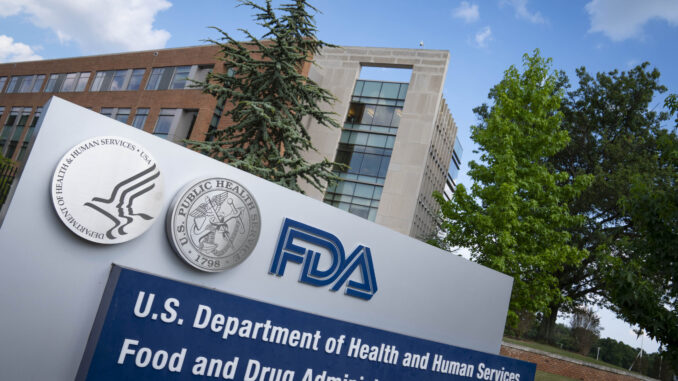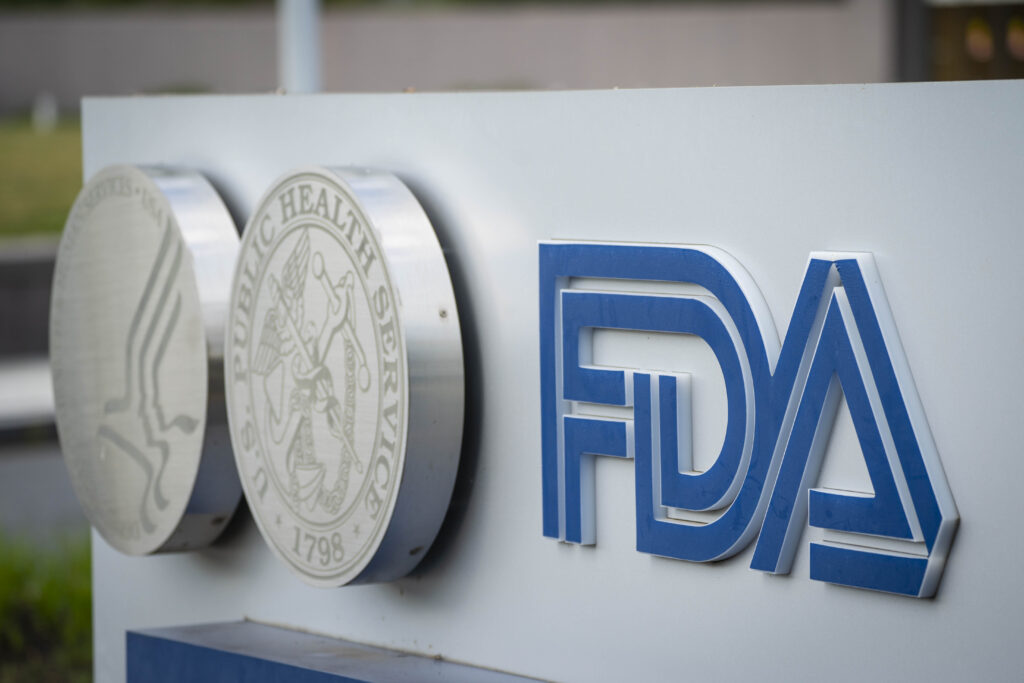
WASHINGTON, DC — The Food and Drug Administration is facing mounting calls to stop making pharmaceutical companies test drugs on dogs while the world waits for an effective coronavirus vaccine.
The agency has for decades forced some drugmakers to perform dog experiments, which is not required by law, according to taxpayer watchdog White Coat Waste Project. While the FDA is supposed to let companies pursue alternatives to animal research, the Government Accountability Office has documented its refusal to accept such approaches to various kinds of required tests, including animal research.

Nearly a year into the global coronavirus pandemic, during which the United States has reported more than 8 million infections and more than 230,000 related deaths, the agency is coming under increasing pressure to cut back on bureaucracy that could slow progress on COVID-19 treatments.
Over a dozen members of the U.S. House of Representatives sent FDA Commissioner Stephen Hahn a letter in July about needlessly requiring companies pay for costly and time-consuming canine tests.
“We are writing to request information about FDA policies mandating that drug companies conduct testing on dogs to fulfill regulatory requirements. We understand from recent reports that in these tests, dogs—even small puppies—are made to ingest or inhale large doses of drugs for months on end before being killed and dissected,” they wrote.
“We are concerned by reports that the FDA has sometimes not allowed companies to use alternatives to animal testing that are more accurate, cost-effective and efficient,” they said. “We want to ensure that unnecessary FDA animal testing red tape does not pose obstacles to medical innovation or slow development of safe and effective drugs, including COVID-19 vaccines and therapies.”
Sens. Martha McSally (R-AZ) and Susan Collins (R-Maine) followed up the inquiry with a letter of their own last month in which they further encouraged the FDA to “prioritize finding alternatives to drug testing on dogs” amid the “ongoing work to fight COVID-19.”
“The FDA’s dog testing requirement for drug makers has been questioned recently by industry and scientists, particularly given the emergence of alternative technologies,” they said.
Drug companies, including those working on coronavirus therapies, have also begun calling for the agency to lessen bureaucracy.
Vanda Pharmaceuticals recently began Phase III of clinical trials for tradipitant, a neurokinin-1 receptor that has shown signs of improvement in patients with severe COVID-19 pneumonia. While the company’s coronavirus studies were able to proceed without canine testing, it filed a lawsuit against the FDA last year for prohibiting it from studying the drug’s other uses without conducting animal studies.
“The Food and Drug Administration (FDA) stands as a gross outlier in the federal government as it relates to their outdated requirement to unnecessarily test and kill dogs,” Mihael H. Polymeropoulos, Vanda’s president and CEO, said in a press release.
“While other agencies in the FDA’s regulatory ecosystem have aggressively sought to leverage technological advances to eliminate their reliance on animal testing, the FDA lags behind them, the broader science community, and the American public,” he said. “By not changing its outmoded approach of forcing companies to conduct unnecessary tests on dogs, the FDA not only misses the opportunity to improve safety, but also pointlessly impedes the delivery of innovative new drugs to patients who need them.”

Additionally, philanthropist and White Coat Waste Project adviser Louise Linton, wife of U.S. Secretary of the Treasury Steven Mnuchin, is doing outreach to the Trump administration in regard to the “senseless” requirement.
“The FDA’s outdated dog testing mandate for pharmaceutical companies is killing thousands of puppies and slowing down medical progress,” she said in a written statement, adding that doing away with it would “promote modern research and spur medical innovation.”
Justin Goodman, vice president of advocacy and public policy at White Coat Waste Project, previously served as director of laboratory investigations and director of government relations at People for the Ethical Treatment of Animals. He also called on the FDA to stop requiring the “wasteful and unnecessary tests before allowing safe, effective drugs to come to market.”
“These slow and misleading tests harm drug makers, patients, and puppies, all of whom need relief now — a call with particular urgency during the COVID-19 pandemic,” Goodman said in an email to Zenger News.
Despite continuing the requirement in some cases, the FDA has taken different steps amid calls to reduce reliance on animal testing, including its recent launch of Alternative Methods Working Group, a program that aims to help develop and regulate new technologies that do not rely on animal models.
Testing methods that don’t require live animal research typically involve the application of alternative systems, including in vitro, in vivo, in silico, and systems toxicology modeling. Such systems can include microphysiological systems, frequently referred to as organs-on-chips, which are tissue-engineered, 3D organ constructs that use cells of human or animal origin to model responses in a micro-environment.
“These advances may help bring FDA-regulated products to market faster, with improved efficacy, or prevent products with increased toxicological risk from reaching the market,” the agency said. “Also critical is the potential for these advances to replace, reduce, and/or refine animal testing.”
President Trump has promised in a statement to deliver an effective vaccine by the end of the year, a timeline that Dr. Anthony Fauci, director of the National Institute of Allergy and Infectious Diseases, recently endorsed.
(Edited by Anna Timmis and Tom Pleasant)
The post FDA Under Pressure to Cut Dog-Testing Requirement in Search for Covid Cure appeared first on Zenger News.
